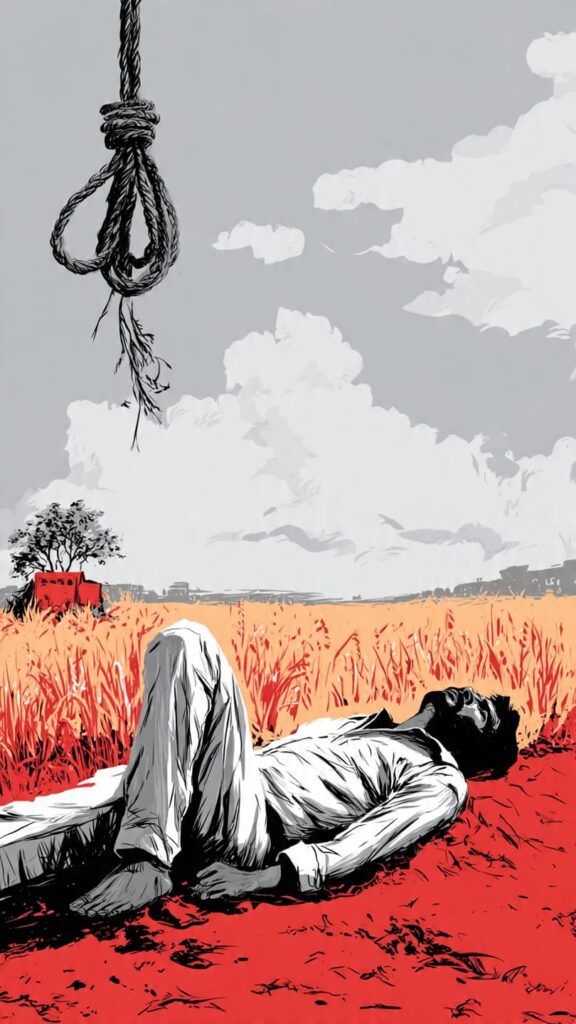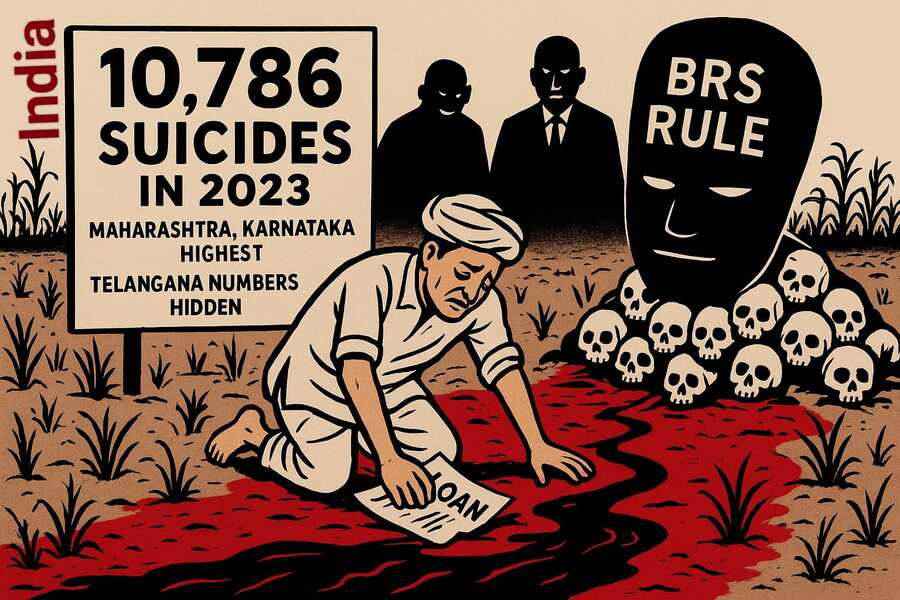Article Today, New Delhi:
As many as 10,786 farmers and agricultural labourers ended their lives in 2023, according to the National Crime Records Bureau (NCRB). The figure, though slightly lower than 2022, reflects persistent distress in the farm sector. Over the past decade, more than one lakh people associated with farming have died by suicide. Analysts say the numbers highlight gaps in agricultural policy and support systems.

Maharashtra and Karnataka Report Highest Cases
Maharashtra alone accounted for 4,151 deaths, while Karnataka reported 2,423. Together, these two States represented nearly 60 per cent of all farm sector suicides last year. Experts point to the burden of loans taken for high-cost crops such as cotton and sugarcane, where crop failures leave farmers with heavy debts. Critics argue that while schemes are announced regularly, they remain largely ineffective in addressing ground realities.
Andhra Pradesh Reflects Labor Distress
In Andhra Pradesh, 925 suicides were reported in 2023, a majority of them among agricultural labourers. Farmer unions allege that welfare promises made before elections have not translated into tangible support. Delays in crop insurance payouts and limited access to institutional credit continue to push vulnerable groups into crisis. Observers note that election rhetoric often invokes farmer welfare, but concrete relief remains limited.
Data Gaps in Telangana
The NCRB data also drew attention to discrepancies in Telangana. While the previous government claimed a steep decline in suicides during its tenure, independent fact-finding groups estimate that more than 7,000 farmer suicides took place in the State between 2014 and 2023. Civil society organisations have urged for greater transparency and accountability in reporting farm-related deaths.
Political Fault Lines
The issue of farmer suicides has increasingly become a tool in political battles. Ruling parties have been accused of underreporting cases, while opposition groups highlight the failures without presenting comprehensive solutions. Experts underline that structural reforms in credit access, crop insurance, and minimum support systems are necessary to address the root causes. Without long-term measures, they warn, the cycle of debt and distress is unlikely to end.



